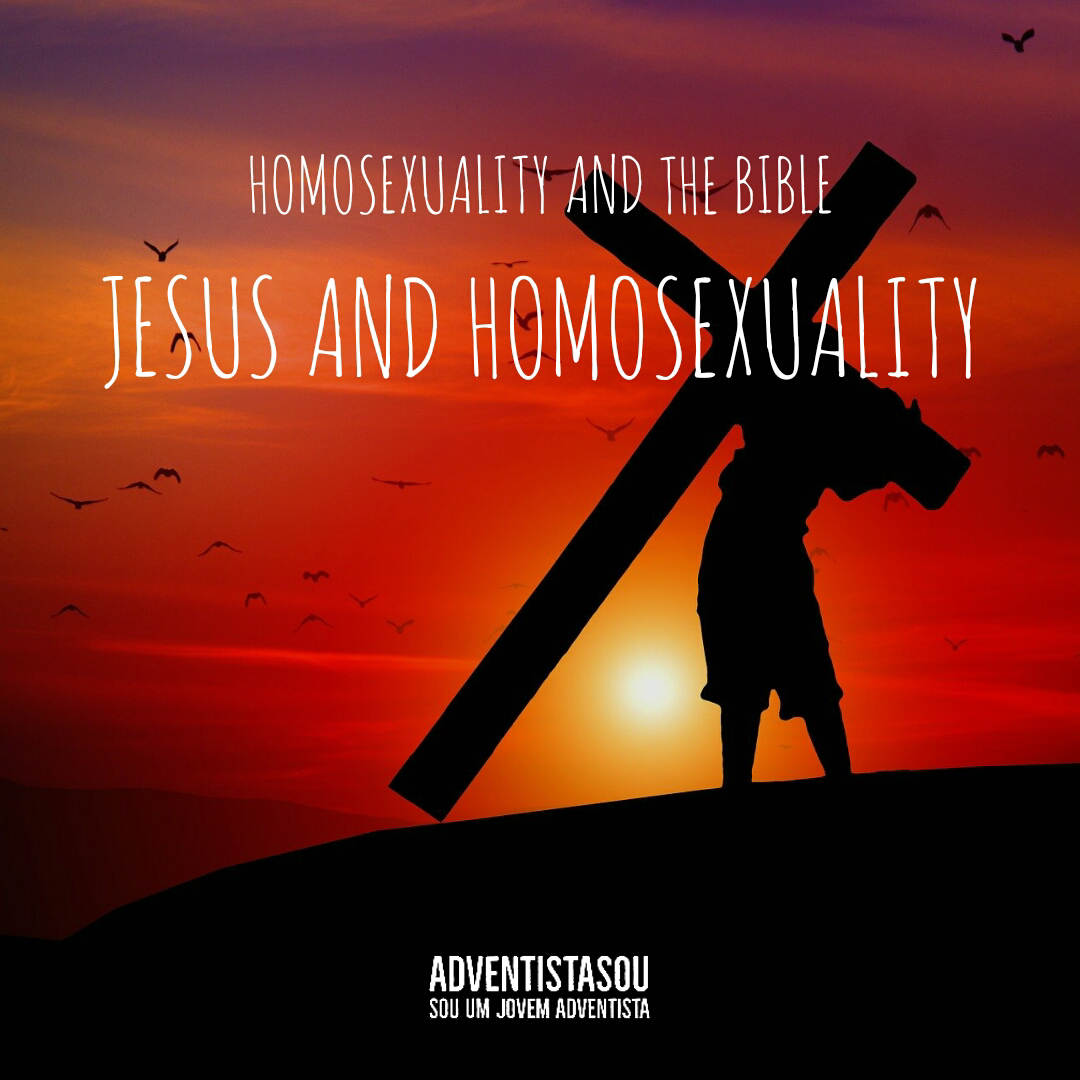HOMOSEXUALITY AND THE BIBLE #04: JESUS AND HOMOSEXUALITY
by Adventista Subversivo
Jesus presented innovative spiritual concepts to those communities accustomed to the strict dictates of the Mosaic Law. One of the evidences that the Gospels do not condemn "homo-affection" is the fact that Jesus never said a word against these relationships. Rather, Jesus recognizes the existence of a diversity.
Among the most revealing texts, we have the account of Matthew 19.3-12. Asked about a marriage situation related to divorce, Jesus demonstrated wisdom by not falling into the Pharisees' trap. Soon after, questioned by the disciples, Jesus recognizes some points of the sexual diversity of his time:
"While Jesus was having dinner at Matthew’s house, many tax collectors and sinners came and ate with him and his disciples.
When the Pharisees saw this, they asked his disciples, 'Why does your teacher eat with tax collectors and sinners?'
On hearing this, Jesus said, 'It is not the healthy who need a doctor, but the sick. But go and learn what this means: I desire mercy, not sacrifice. For I have not come to call the righteous, but sinners.'" (10-13)
In this text, Jesus states that not everyone is able to receive the concept of indissoluble heterosexual marriage (v.11). Next, Christ explains three reasons for this:
1) there are birth eunuchs;
2) there are eunuchs that were made by men; and
3) those who become eunuchs for the kingdom of God, that is, celibates.
From that list, only in the third case did Jesus use the term metaphorically, figuratively. What matters most in this study is the first meaning, that is, eunuchs from birth.
Commonly, eunuchs were men who were intentionally castrated to serve in palaces, mainly in the role of guarding women without being able to offer them any sexual risk. It was essential that monarchs were sure of their children's paternity in order for the royal succession to be legitimate and recognized. For this very reason, eunuchs were respected and worthy of complete trust, and at times the Bible refers to them as court officials (Acts 8:27).
In Hebrew and Aramaic (the language spoken by Jesus) there was no specific word for homosexuals, but studies indicate that the term eunuch was ALSO used to refer to male homosexuals.
Judaism knew only two categories of eunuchs: the 'man-made' (in Hebrew, sãrïs' ãdhãm) and those who were born congenitally incapable or without libido (instinct and sexual desires) called 'natural' or 'sun eunuch' (in Hebrew, sãrïs hammâ).
Among the characteristics to identify a birth eunuch, the Talmud (is a series of Jewish writings that includes rabbinic discussions about the ethics, law, customs and history of Judaism) mentions the fragile ways, little beard, the softness hair, skin and effeminate voice.
None of your tests involves checking for the presence of anatomical defects in the reproductive organs. Such eunuchs were even commonly associated with homosexual desire.
I am not saying that "eunuch" is the SAME thing as "homosexual", but that the spiritual principle applied by Jesus regarding sexual diversity, applies in a similar way in the cases of those who are born, both eunuchs and homosexuals. That is, people who cannot "receive" the concept of heterosexual marriage.
Why should Jesus say, "Not everyone can receive this Word, but only those who have been given it"? And still reaffirms concluding: "Whoever can receive this, receive it".
If He were referring only to barren adults, those who had no children of marriage, there would be no need to make the proviso that few would understand His words.
Or would it be, since infertility was always at first attributed to that of women?
No, because when the woman was sterile, the man was given the right to have another woman. It means, then, that it was known to all that sterile men existed, and there would be no need for reservations.
Jesus treated the matter with a macro worldview of the concept of existing sexual diversity.
[Observation]
There is not a single word in the Bible: homosexual, lesbian or homosexuality. All Bibles that use these expressions are wrong and poorly translated. The word homosexual was only created in 1869, bringing together two linguistic roots: Homo (from Greek, meaning "equal") and Sexual (from Latin). Therefore, since the Bible was written between 2,000 and 4,000 years ago, writers could not have used a word invented only in the last century.
The practice of love between people of the same gender, however, is much older than the Bible itself. There are Egyptian documents from 500 years before Abraham, which reveal homosexual practices not only among men, but also between gods Horus and Seth. According to the poet and writer Goethe, "homosexuality is as old as humanity".
Certainly, each time with its unique experience, but with the same direction of desire: the same.
[End of observation]
What Jesus condemned was the hardness of heart, the intolerance of the hypocritical Pharisees, the cruelty of those who say 'Lord, Lord!', but forget about charity and respect for others (Matthew, 7:21). And it was the Messiah himself who set the example of tolerance towards "deviants", walking and eating with prostitutes, sinners and tax collectors.
Jesus explicitly stated:
"Dear friends, let us love one another, for love comes from God. Everyone who loves has been born of God and knows God." (1 John 4:7).
I'm not talking about promiscuity, prostitution, perversion, pederasts and the like, I'm addressing love.
And when someone falls in love and loves another person of the same sex? In the next study, we will talk about the passages in Paul's letters that apparently, they approach the subject.
Good debate!






Comentários
Postar um comentário
Diga-nos o que achou das publicações e dê-nos sugestões de novos posts. Gratidão e curta nossa página no Facebook: https://www.facebook.com/SouUmJovemAdventista